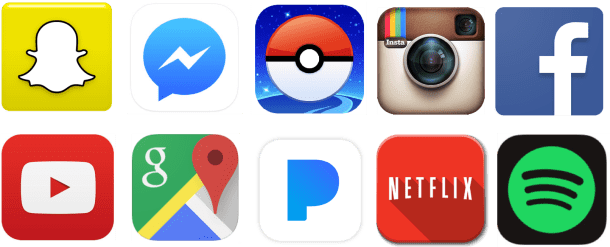A couple months ago Benedict Evans published his thoughts on the future of mobile, in a post called Mobile 2.0.
Mobile 2.0 says ‘there are a billion people with high-end smartphones now’*. So, what assumptions are being left behind? What do you do differently if you assume not just the touch screen from 2007 but unlimited battery and bandwidth
There are 5 primary themes he highlights:
- Shift to mobile only design
- Camera as input (“computers with eyes”)
- Richer content thru video
- Platforms (Snap, FB, Google) creating ecosystems around content creation and sharing
- Machine learning and augmented reality + wearables as the next frontier
I’ve been reflecting on the way mobile technology is changing, and I’d like to suggest an additional implication:
Death of the traditional mobile keyboard as we know it.
The 5 themes highlighted above all support a shift away from the keyboard as the predominant way users interact with their phones to both generate and consume information.
According to Apple (as cited by Mashable), the top 10 most downloaded apps of 2016 were:

How do users predominantly interact with these apps?
- Scrolling
- Tapping to select links
- Liking posts
- Adding images and videos
- Emojis
- Search — but very few letters are needed to return a useful result, and then you’re back to tapping on the screen again
Yes people are still using text to communicate via SMS and messenger apps and to describe the content they’re sharing on social media, but the time spent on the keyboard is becoming a smaller percentage of the overall time spent interacting on the phone. On your phone, the keyboard UX is often clumsy — popping up and blocking most of you screen and often non-intuitive to advance when you’re done using it. Users are often fumbling with the keyboard in the midst of an otherwise seamless app experience.
With the introduction of new voice recognition services (Alexa, Google home), we’re finally seeing voice applied to situations where it is faster and more convenient than tactile interactions (typing!) on your phone.
The keyboard as we know it today is not keeping up with our mobile demands for speed, precision, and simplicity. I expect that the mobile keyboard will be reenvisioned or replaced in the next couple years.